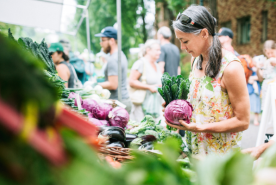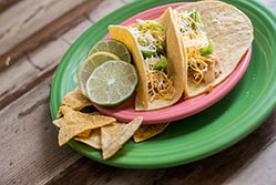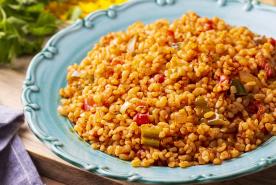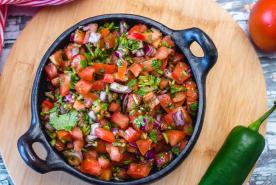September 20, 2022
Dawn P. Edwards, a 25-year chronic kidney disease warrior and nocturnal home hemodialysis patient, has watched kidney disease nutrition change over the years. At the start of her kidney disease journey, healthcare professionals dissuaded her from plant-based diets because she was at risk of developing dangerous potassium levels. Now many providers support these diets if guided by a professional. Following this advice, Dawn has since worked alongside a kidney dietitian to create a low-potassium plant-based diet and has never felt better.
Wondering if you can follow a plant-based diet with a potassium restriction? Dawn and Jessianna Saville RD, CSR LDN, a kidney dietitian with 12 years of experience, are here to give you the scoop on plant–based diets for people with kidney disease.
What is Potassium?
Potassium is an important mineral found in various foods that helps keep your heart beating regularly and your muscles working correctly.
"It is one of our electrolytes that helps keep our muscle firing and our nerves functioning," said Jessianna. "Potassium comes on the radar for people with kidney disease because the kidneys help balance out the potassium in the blood. It's one of their core functions. If your kidneys aren't working well, you can start getting some imbalances."
An imbalance of potassium, whether too much or too little, can cause problems.
“Potassium is actually a really helpful nutrient because it helps with blood pressure,” Jessianna said. “You have to be mindful because too much could stop your heart and too little can cause cramps on dialysis and other problems. It's a nutrient you need some of.”
Regular blood work will help monitor your potassium and determine if you need to change your diet or take medications, like water pills or potassium binders, to help maintain safe levels.
| Blood potassium level | |
| 3.5-5.0 | Safe |
| 5.1-6.0 | Concerning |
| Higher than 6.0 | Dangerous |
Join the NKF Blog Newsletter
Get inspirational stories and kidney disease resources delivered to your inbox every month. You'll gain practical insights and expert advice to help you better understand and manage your kidney health no matter where you are on your kidney journey. Subscribe today.
How Much Potassium is Okay?
People without potassium restrictions should have about 3500 to 4000 milligrams per day. Those with restrictions typically limit consumption to 2000 milligrams per day; however, there is no one-size-fits-all approach to eating the right amount.
“It's individual for the person and not across the board. You don’t have to cut potassium out just because you're on dialysis or your kidneys don't work,” Jessianna said. “That is amazing because that has allowed a lot of people to increase the variety in their diet and add back in things that they thought were bad.”
The amount of potassium you’ll need depends on factors like your lab work, stage of kidney disease, and other health conditions.
“As patients, we should really consult our dietitians and the members of our care team to help us to pick the right diet for us,” Dawn said. “Everyone is different.”
Too Much Potassium?
If too much potassium builds up in the blood, you may experience hyperkalemia, a serious condition that could be life-threatening if left untreated.
“When you get too much potassium in the blood, it really impacts nerves and muscles. You may feel fatigued in particular,” said Jessianna. “Essentially, if your potassium is starting to hit over seven or seven and a half, that’s super dangerous. Some people immediately go to the hospital to make sure that that can get taken care of because it can stop your heart.”
Dawn experienced this firsthand: "I had some experiences during my kidney journey with hyperkalemia. It was a frightening experience. I lost full body muscle control and had to go to the emergency room."
Unfortunately, few people experience symptoms until they have a medical emergency, like Dawn. If symptoms do occur, they are usually mild, non-specific, and occur slowly over a few weeks.
You may feel
- muscle weakness
- numbness
- tingling
- nausea
- other unusual feelings
If you suddenly experience very high levels of potassium, you may feel
- heart palpitations
- shortness of breath
- chest pain
- nausea
- vomiting
Luckily, Dawn recovered and she discussed these developments with her dietitian to create a game plan for the future.
Following a Safe Plant-Based Diet
After Dawn's experience with hyperkalemia, she wanted to move to a plant-based diet but some providers wondered if this was feasible, considering that many plant foods contain potassium.
“Everyone was worried about not enough protein and too much potassium,” Dawn said. However, “I noticed some really excellent results. Initially, my potassium went up a little bit but I talked to my dietitian about the types of potassium foods I should be eating. We've made some adjustments and now I feel great as a result.”
Science backs this up, too: Varied, well-balanced plant-based diets may prevent and slow the progression of chronic kidney disease, Type 2 diabetes, high blood pressure, and heart disease.
"If you're doing a good nutrient-dense plant-based diet, you may feel a lot better. It's very doable, but if you feel nervous about it work with your dietitian. They can help guide you," said Jessianna. "There's a ton of good swaps for some of those high potassium foods that work almost exactly the same. For example, turnips get a really bad wrap, but they cook nicely as a root vegetable and they don't have quite as much potassium. So you can make little swaps like that and make it a lot easier to still enjoy some of your favorite foods.”
Your dietitian will likely order blood work a few weeks after you start a plant-based diet to check your potassium levels. If they’re too high, you’ll work together to create an updated diet plan that works for your lifestyle and healthcare needs.
"We picked out some great food choices for me, things that I really enjoyed and were easy for me to prepare. My lab started to level off and I felt so much better because I didn't have so much meat in my diet. It was so easy to digest and I felt an overall better sense of well-being," Dawn said, "The real main point here is for patients to talk to their dietitians and get that individualized care plan for meals that work the best for them and their blood work."
Get the Latest in Kidney Research, Care, and Treatment
Join us as we highlight the latest in kidney research, dispel myths, bring you up-to-date news in kidney care, and answer questions from patients to help them live well with kidney disease or a transplant. Subscribe to Hot Topics in Kidney Health.


















